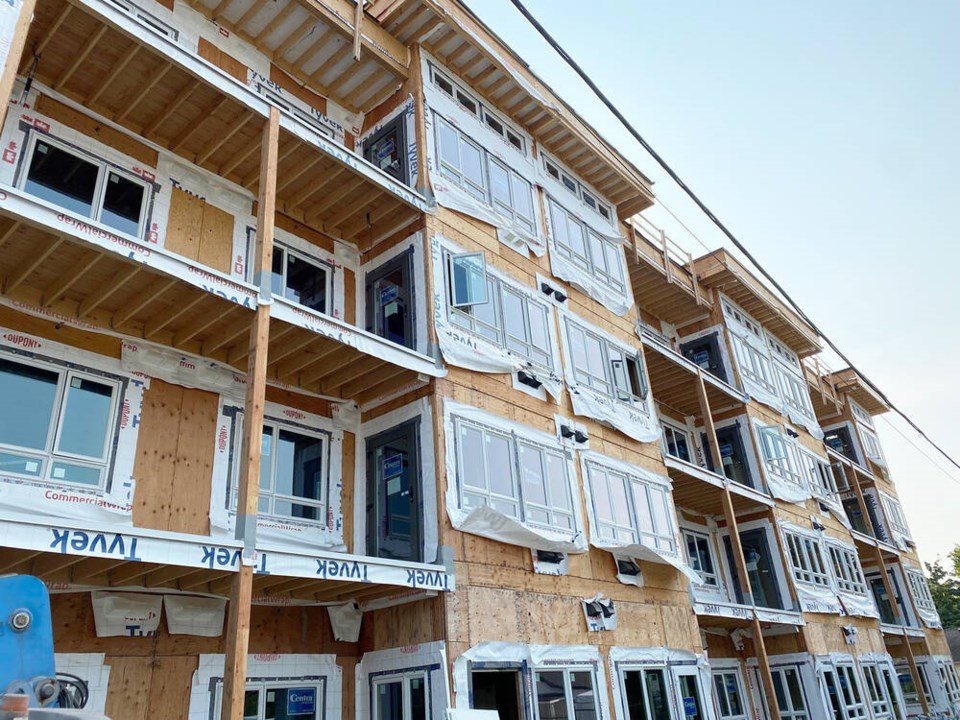Coquitlam has 18 new items on its business plan for next year.
But city council is already flagging that some may not get done in time because of the new provincial legislation on housing and municipal staffing shortages.
This fall, elected officials heard about the major impacts on city business that will come in 2024 as a result of recent changes to address the housing crisis, as well as on regulations for emergency management and accessibility, for example.
"Many of the potential impacts of these changes are unfortunately still unknown as details of these policies and legislation have not yet been fully released," said Nikki Caulfield, general manager of corporate services, at the Dec. 4 meeting.
"Staff believe that the effects of these changes on the city’s work and priorities… will be significant."
Specifically, the timeline to implement the provincially legislative mandates on housing will be tough to meet and may pause in capital projects, she said.
Bill 44, which the province introduced on Nov. 1, will bring sweeping changes to the local planning framework through new requirements to allow more density in areas now zoned for single-family or duplex use, said city manager Raul Allueva.
As well, the legislation will change the housing needs reporting, cut out public hearings for rezonings and require more frequent updates to the Official Community Plan with mandatory pre-zoning that accommodates a 20-year housing supply.
Further, the new Bills 46 and 47 create reforms to infrastructure funding through changes to development cost charges (DCC), introduce a new amenity cost charge and mandate more growth plus changes to properties around public transit hubs.
Council reaction
Coun. Craig Hodge, a board director at Metro Vancouver who’s also on the executive for the Union of BC Municipalities (UBCM), warned about projects like the Hazel–Coy development plans and heritage strategy getting shelved temporarily.
"I do really feel that we’re not going to be able to deliver."
"It’s unfortunate the province is taking this direction," added Coun. Brent Asmundson, noting the ramifications of the legislation could slow down housing.
"I don’t think the public fully understands the amount of increased burden on all of our staff to figure this all out."
Coun. Robert Mazzarolo was more blunt with his words.
The housing deadlines set by the province are "not possible with the staff we have," he said.
"You cannot on a dime hire more planners. It takes years to become a new planner. It takes even more years to become a good planner. All cities will do is bid-up the price of planners and try stealing planners from each other. This will not help affordability."
For the 2024 Business Plan, which council unanimously approved, Coquitlam is staying focused on four major themes:
- equity, diversity and inclusion (continued from 2023)
- reconciliation (continued from 2023)
- housing supply and affordability (new for 2024)
- community safety (new for 2024)
And some of the highlights in the Business Plan that, next year, will fold into the city’s 2024–27 Strategic Plan include:
- improving housing supply and affordability
- providing leadership to the delivery of housing within the region and province
- continuing development and renewal of key plans
- designing the North East Recreation Centre and Park
- completing Spani Pool and the Town Centre Park Community Centre
- implementing the Building Safer Communities Program
- launching the city’s accessibility plan
- renewing the city’s festival and events strategy and corporate partners program
Port Coquitlam priorities
Meanwhile, at its last meeting of the year, on Dec. 12, Port Coquitlam city council unanimously OK’d its priorities for 2023–26.
CAO Rob Bremner listed six key focus areas that will guide PoCo politicians and staff in their work over the next three years:
- planning for a livable, vibrant and fun city
- becoming a leader in B.C. for sports, recreation, parks and trails
- promoting arts, music festivals and public spaces
- constructing infrastructure to support events
- support accessibility and inclusion
- enhancing emergency management planning
- improving policing services
- updating bylaws and policies
- addressing unsafe vacant properties
- increasing affordable and supportive housing
- enhancing environmental sustainably
- adopting climate change plans
- improving watercourse health
- developing integrated watershed management plans
- launching an urban forestry roadmap
- meeting annual tree planting targets
- implementing flood mitigation strategy
- upgrading drainage infrastructure
- supporting a thriving local economy
- implementing the downtown revitalization plan
- starting the downtown parking strategy
- supporting economic development
- intensifying industrial land uses
- supporting local job creation
- creating more child care spaces
- striving for organizational excellence
- increase public input and engagement
- focusing on customer service excellence
- attracting and retaining city employees
- creating a positive work culture at city hall
- building on First Nations relationships
- seeking operational efficiencies
- improving transportation and mobility
- investing in school, pedestrian and cycling safety
- lobbying for SkyTrain to come to PoCo
- adopting a master transportation plan
- continuing with neighbourhood road rehabilitation
- advocating for railway separation projects
- building Fremont Connector
- replacing the Coquitlam River Bridge
- managing city finances and assets responsibly
- maintaining an affordable property tax rate
- leveraging the city land assets
- reviewing annual service levels
- adopting DCC bylaw
- implementing asset management plans
- creating long-term capital/financial plans
- evaluating management of investments





